Lady Breaks Into Her Cousin’s House To Steal Back Cat That Was Taken From Her Without Permission
We all love our little furry ones, and no committed pet owner would agree that a dedicated pawrent would ever purposefully neglect to care for their animals. Sometimes, people tend to get busy, but that doesn’t mean that they neglect their pets.
Having a pet is not just about "Oh, look at that cute kitty," and then taking the cat home only to ignore it later on. These animals have feelings, and they deserve to be treated nicely, especially when they’ve just been taken off the streets.
The Redditor in today’s story happens to be one of those who rescued a kitten from the streets at a very tender age. She found the cat outside her workplace and fell in love with her immediately, so she took the cat in and named the kitten Midge.
The OP has a cousin named Tanya who visits her often since they live in the same city, and to make things even more adorable, Tanya is a cat person. So, the OP lets Tanya take care of her cat while she goes to work.
But on a very fateful day, the OP came back only to discover that her cat was gone. She called her cousin, and she denied seeing him, but that was only the beginning, as the OP was about to be shocked.
This Redditor wants to know if she's wrong for stealing her cat

We've had the best time together

I let my cousin take care of Midge
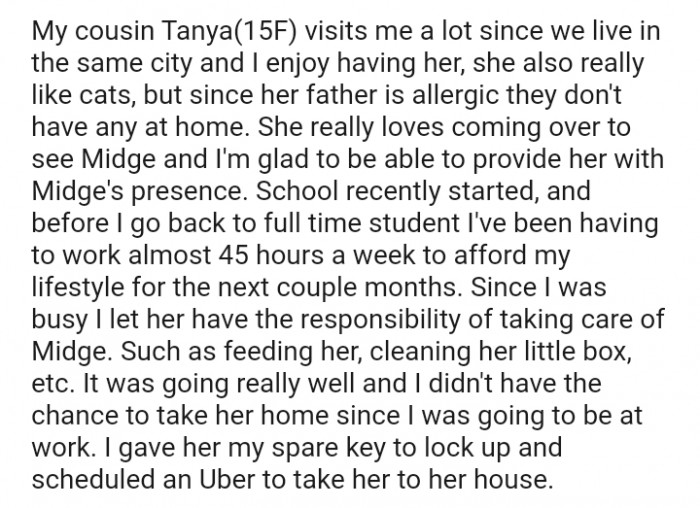
The Ethics of Pet Ownership
Stealing a pet, even in the name of love, raises significant ethical questions regarding ownership and responsibility. As noted by Dr. Helen Fisher, a biological anthropologist, "Our emotional connections to pets can often cloud our judgment about ownership and rights." This situation highlights the complexities of attachment and possession, where emotional bonds can blur the lines of ethical behavior. Dr. Fisher emphasizes that "understanding the psychology behind our attachments can help navigate these challenging situations."
The Psychology of Ownership and Attachment
The act of breaking into a family member's home to reclaim a pet reflects deep emotional attachments and a sense of ownership.
Dr. Alison H. Green, a clinical psychologist, emphasizes that our pets often represent significant emotional investments, leading to intense reactions when they are perceived as being taken away.
This scenario illustrates how attachment styles can manifest in extreme behaviors, indicating underlying insecurity and fear of loss.
I came back and Midge was gone
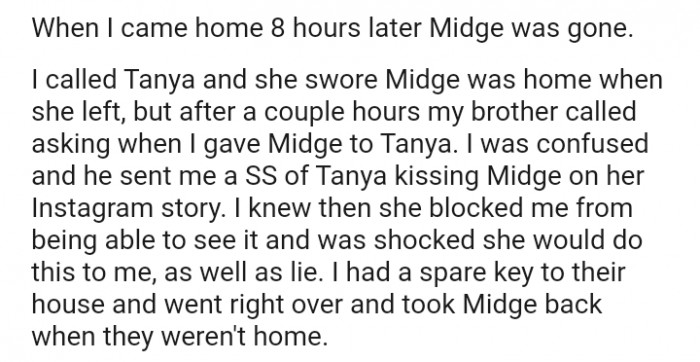
Her parents were upset
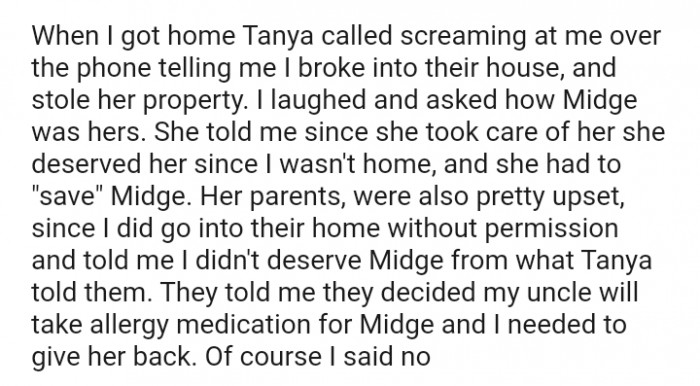
Tanya texted me this weekend
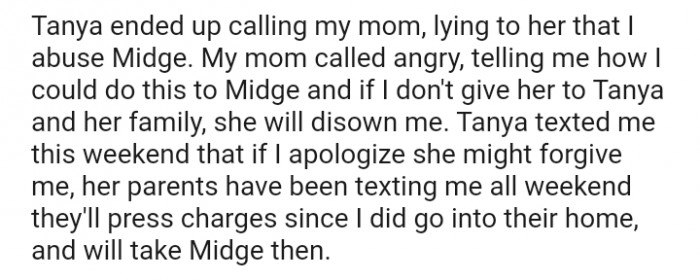
Moreover, this incident illustrates the potential for conflict between personal values and societal norms. According to studies in social psychology, individuals often grapple with moral dilemmas when their desires conflict with established social rules.
Understanding these dynamics can provide insight into the motivations behind such actions.
Research shows that attachment styles developed in childhood can significantly impact adult relationships and behaviors.
According to studies published in the Journal of Personality and Social Psychology, individuals with anxious attachment styles are more likely to engage in desperate behaviors when faced with perceived abandonment.
Why I know this...

I got into their home without permission

Here is an edit the OP added later on
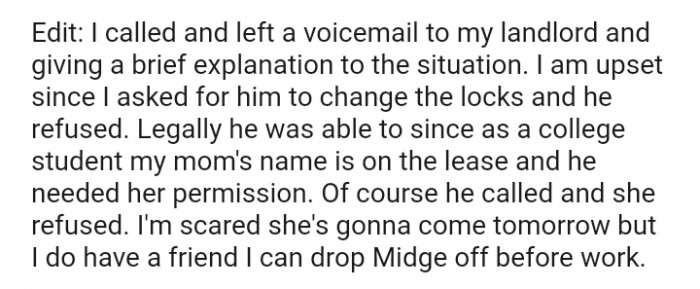
Exploring Attachment Styles
The emotional attachment to pets often mirrors human relationships, impacting how individuals perceive ownership and loss. Research indicates that attachment styles can significantly affect how people react to perceived threats to their bonds. In this case, the woman's actions may reflect a secure attachment to her cat, leading her to feel justified in her actions to reclaim it.
Recognizing these attachment dynamics can promote a deeper understanding of the motivations behind such behaviors.
Understanding Family Dynamics in Pet Ownership
Family dynamics can complicate pet ownership, particularly when emotional ties are involved.
Dr. Sarah L. Thompson, a family therapist, notes that disagreements over pet ownership often reflect deeper issues within familial relationships.
This situation showcases how unresolved conflicts can surface in unexpected ways, particularly when it comes to beloved pets.
Redditors came out in their hundreds to comment on this story, and we've gathered a bunch of their topmost comments below.
It does not make sense

Have your cat microchipped
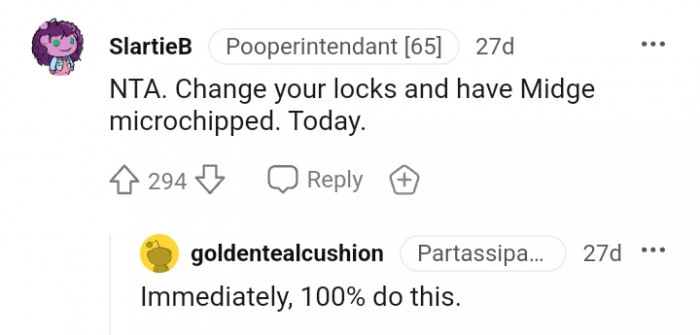
You only retrieved your property
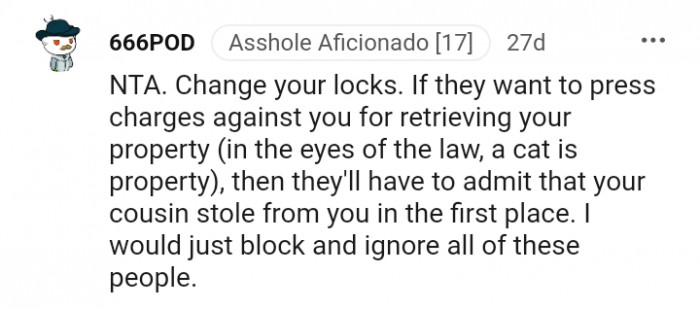
Additionally, this scenario underscores the importance of communication in resolving conflicts related to pet ownership. Studies show that effective communication strategies, such as expressing feelings and negotiating boundaries, can lead to healthier relationships. Encouraging open dialogue can help individuals navigate complex emotional situations more effectively.
In this case, discussing feelings surrounding the pet's ownership could have prevented the conflict.
To address such conflicts, experts recommend establishing clear communication about pet ownership responsibilities within families. Dr. William Doherty, a family therapist, states, "Open dialogues are essential in clarifying expectations and preventing misunderstandings." His insights can be explored further on his professional website, Dr. William Doherty. By fostering conversations about pet care, families can create a more harmonious environment.
You did kind of commit a crime
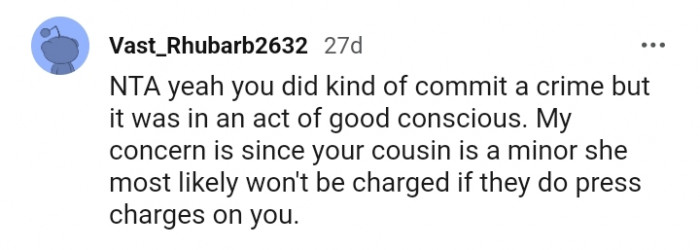
There's a paper trail
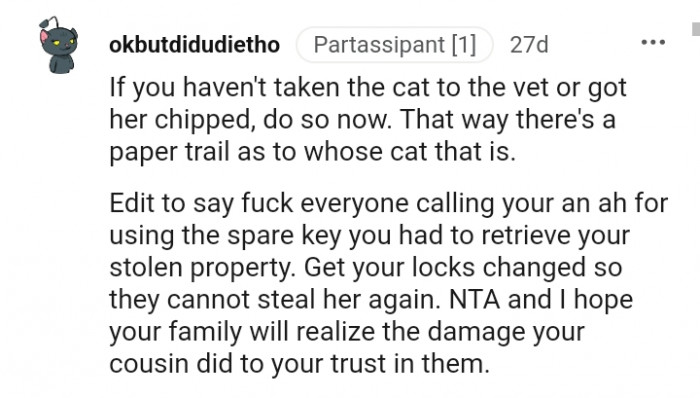
Mom is hanging on by a thread
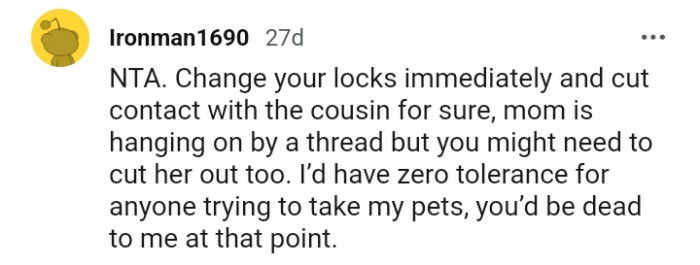
The Impact of Emotional Distress
Emotional distress can significantly influence decision-making, particularly in the context of attachment to pets. Research published in the Journal of Emotional Psychology indicates that heightened emotions can cloud judgment, leading individuals to act impulsively.
This incident illustrates how emotional turmoil can result in actions that, while motivated by love, may not be ethically sound.
Practical Strategies for Resolving Pet Ownership Conflicts
When faced with pet ownership disputes, it’s essential to approach the situation calmly and empathetically.
Experts suggest using mediation techniques to facilitate discussions and ensure all parties feel heard.
Additionally, creating a shared pet care plan can help clarify responsibilities and foster cooperation among family members.
Change your licks and start blocking people

Tanya abused her access
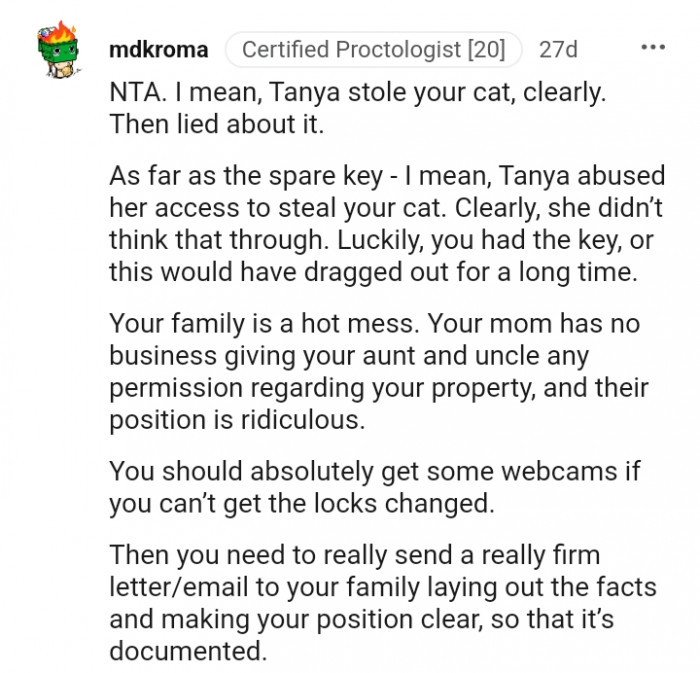
Go and get your cat a chip
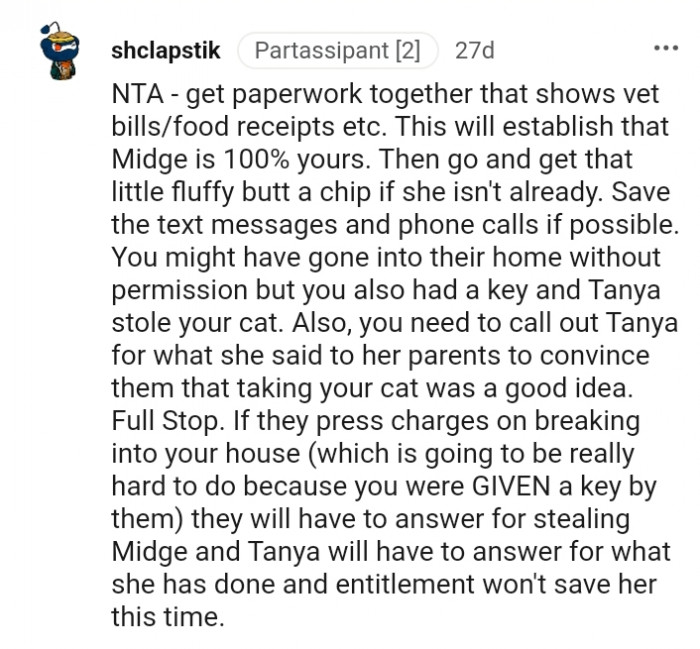
Ultimately, fostering a supportive community that encourages open dialogue around pet ownership and responsibilities can lead to healthier relationships. Encouraging individuals to share their experiences and feelings can help promote empathy and understanding. By valuing these discussions, communities can create environments that support both pets and their owners.
Such an approach fosters a culture of care and respect for animals, enhancing the overall well-being of the community.
Change your locks as soon as possible
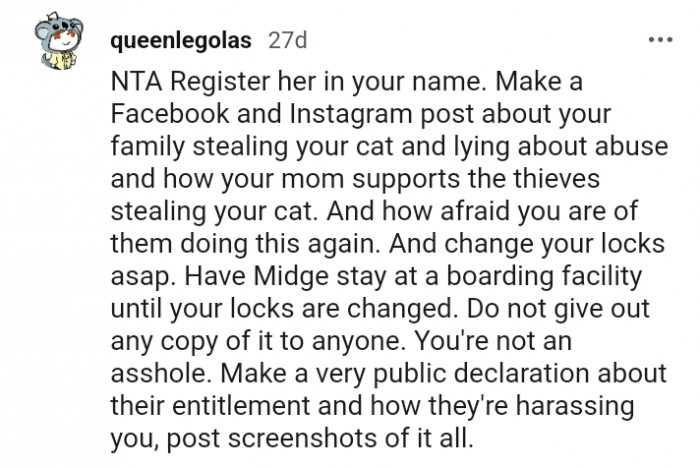
Ask your landlord how he wants it done
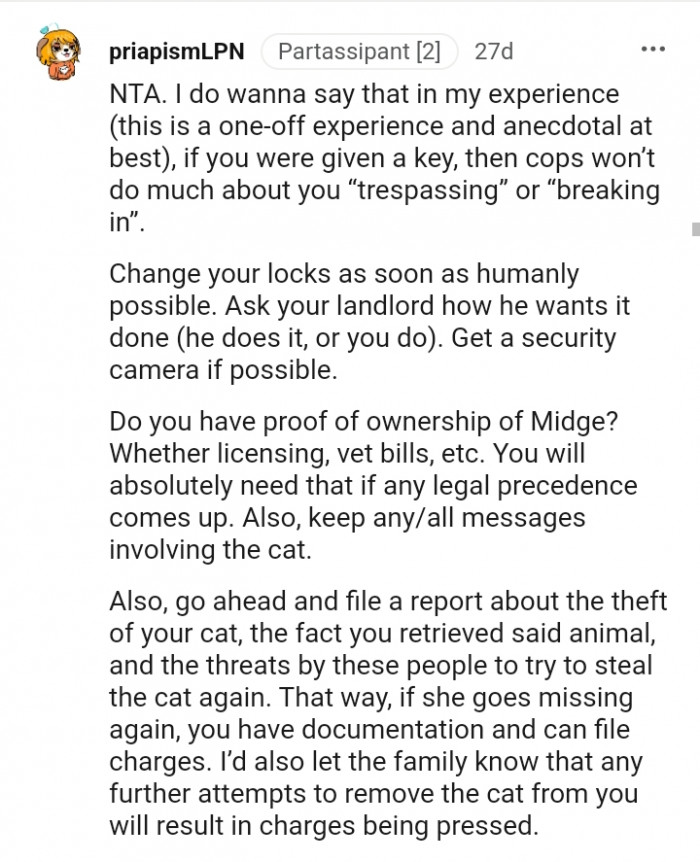
The OP added this update in the comments
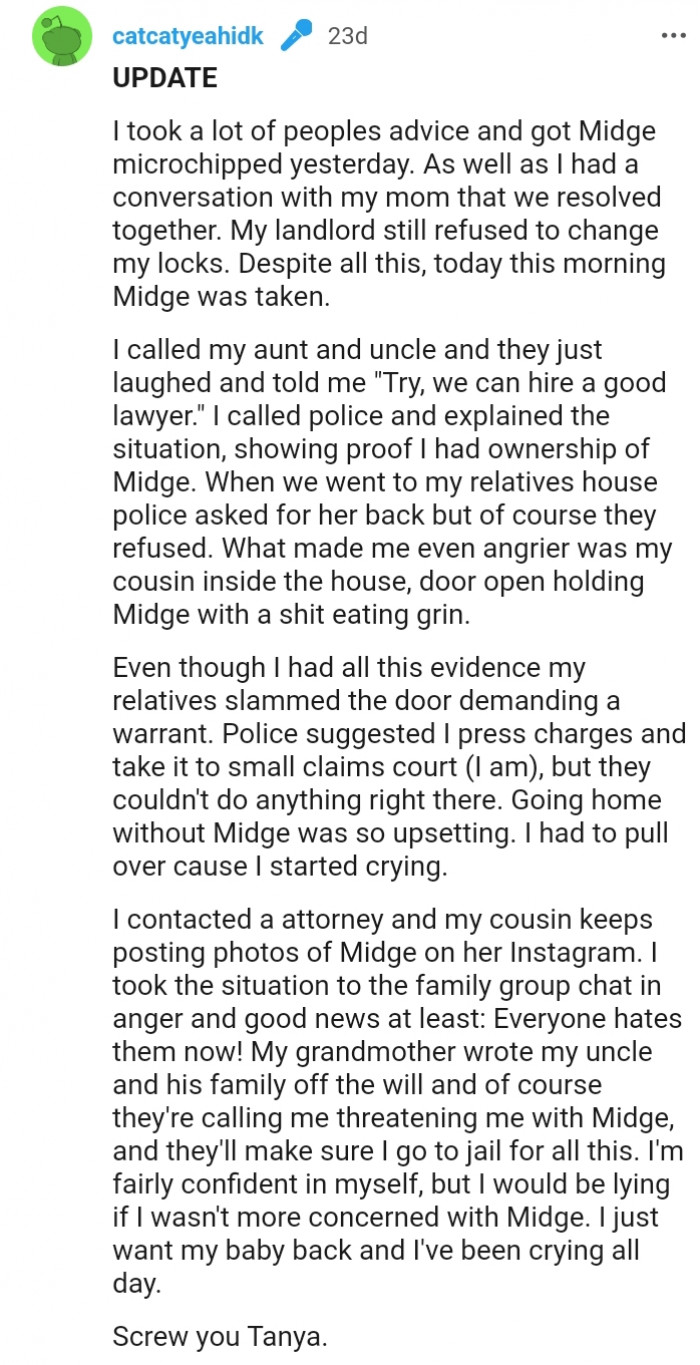
And the comments continue...
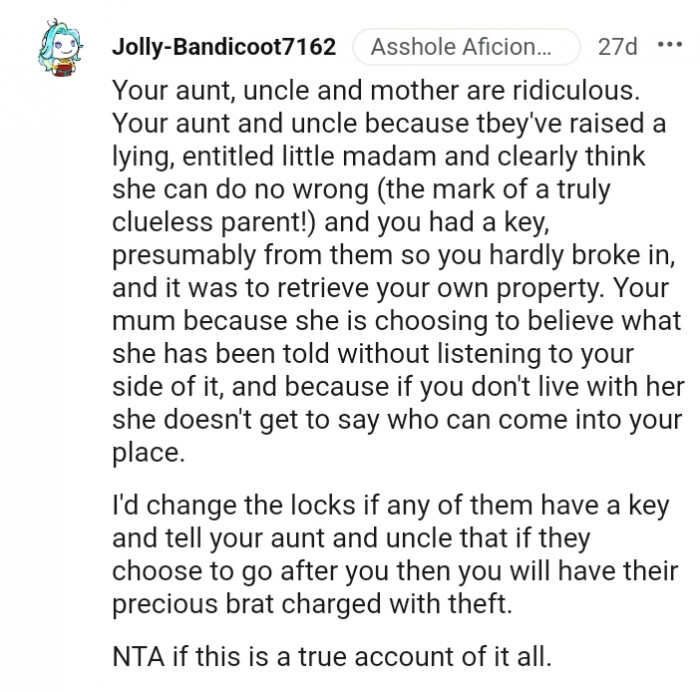
You have every right to take your cat

You need to write the whole situation down
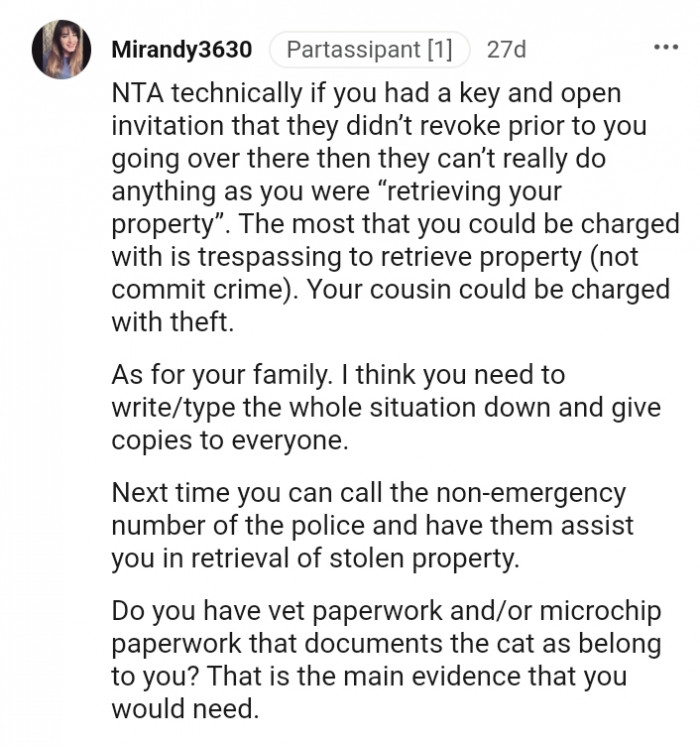
You couldn't provide the level of cat care
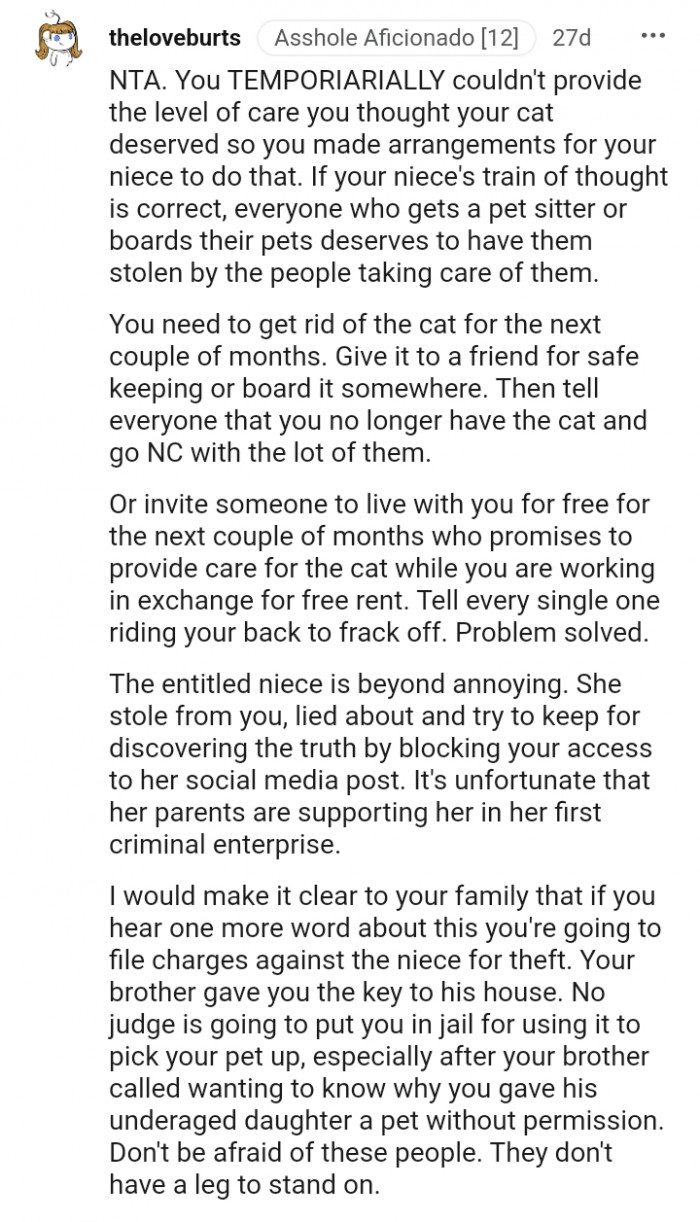
This Redditor would have done the same thing
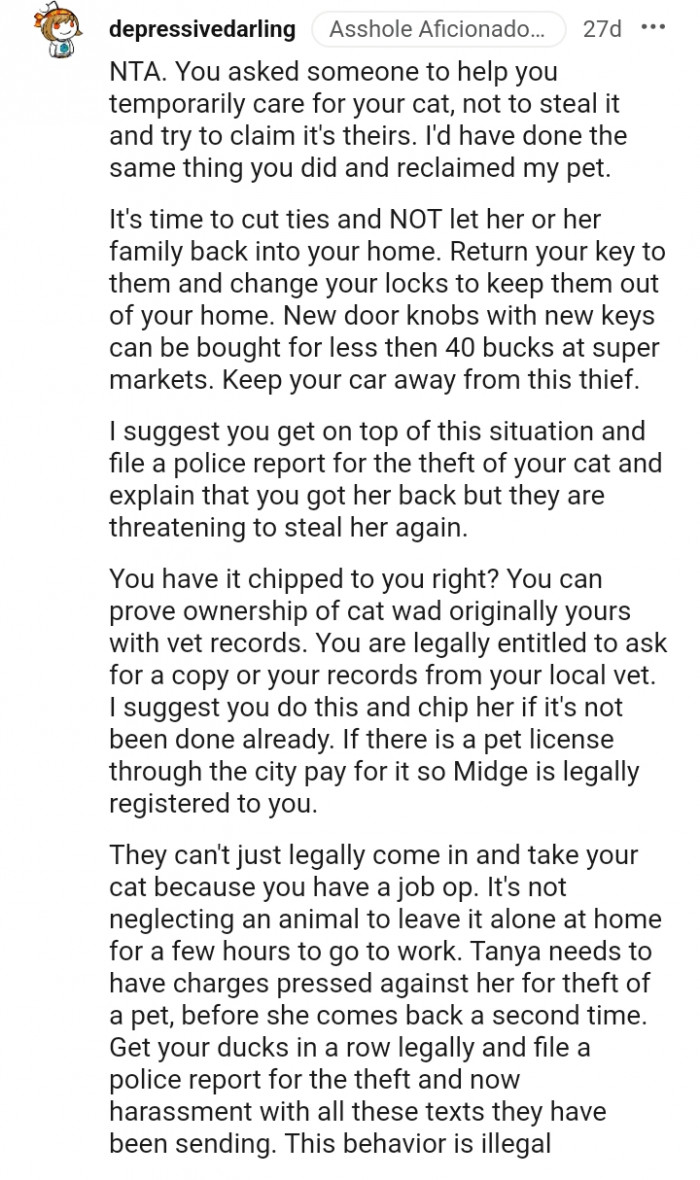
They can deal with me after

There is no bill of sale
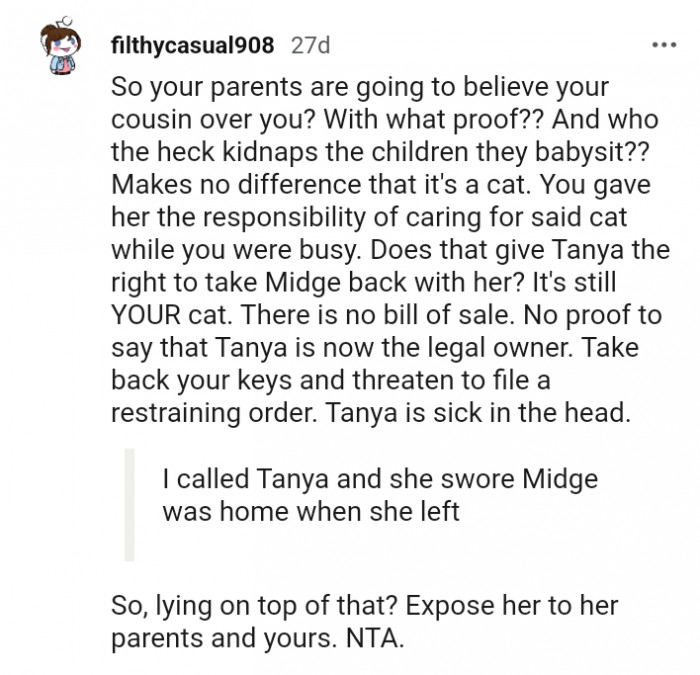
It's not the other way round

You are a grown adult
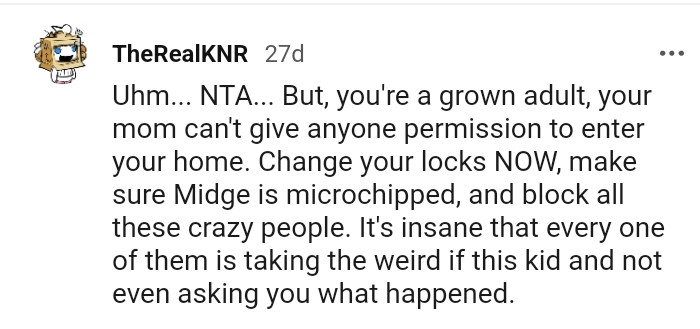
Here is the second edit added by the OP
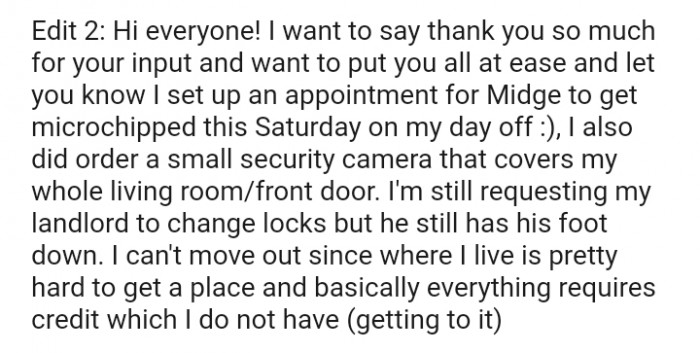
The only negative side...
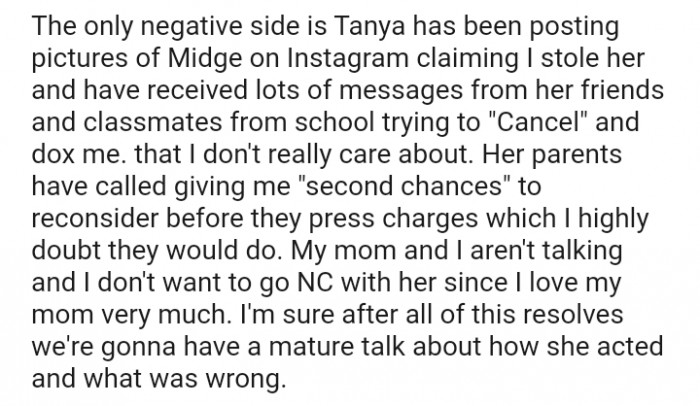
Well, this is quite a story. It's terrible to entrust your pet to someone and have them steal from you instead of helping you.
We do hope the OP pulls through this one and Midge gets to be with her true hooman. What would you do if you were in the OP’s shoes?
Do let us know your thoughts about this story in the comments below.
Psychological Analysis
This scenario reflects the deep emotional ties individuals have with their pets and the complexities that arise when those attachments are threatened.
Our in-house psychologist highlights the importance of clear communication and empathy in resolving ownership disputes effectively.
Analysis generated by AI
Analysis & Alternative Approaches
In conclusion, the emotional complexities of pet ownership within families require careful navigation and understanding. According to Dr. Alexandra Solomon, a relationship therapist, "Open communication is essential in resolving conflicts, especially when it involves family dynamics and shared responsibilities." Fostering such dialogue can significantly enhance family relationships and mitigate conflicts, as highlighted by her insights on nurturing healthy connections.
Analysis & Alternative Approaches
In conclusion, this scenario illustrates the complex interplay between emotional attachment, ethical considerations, and community dynamics surrounding pet ownership. Research emphasizes the importance of communication and understanding in navigating these issues.
By fostering open dialogue and compassion, individuals can create more supportive environments for both pets and their owners.



